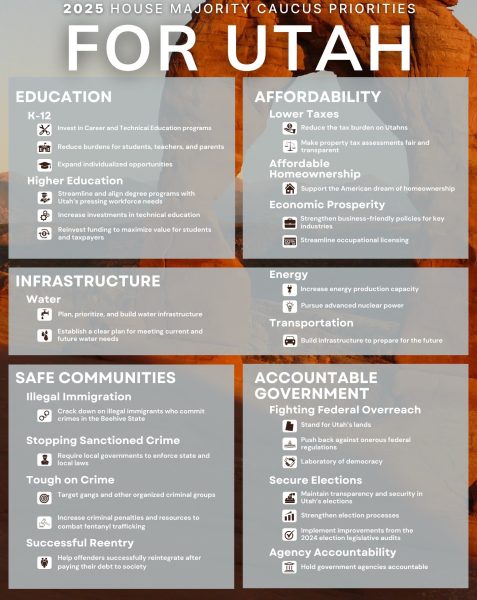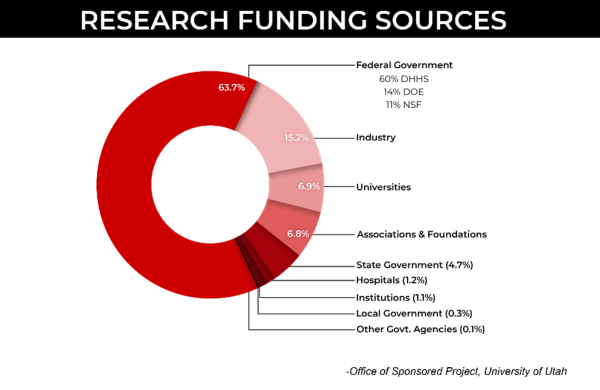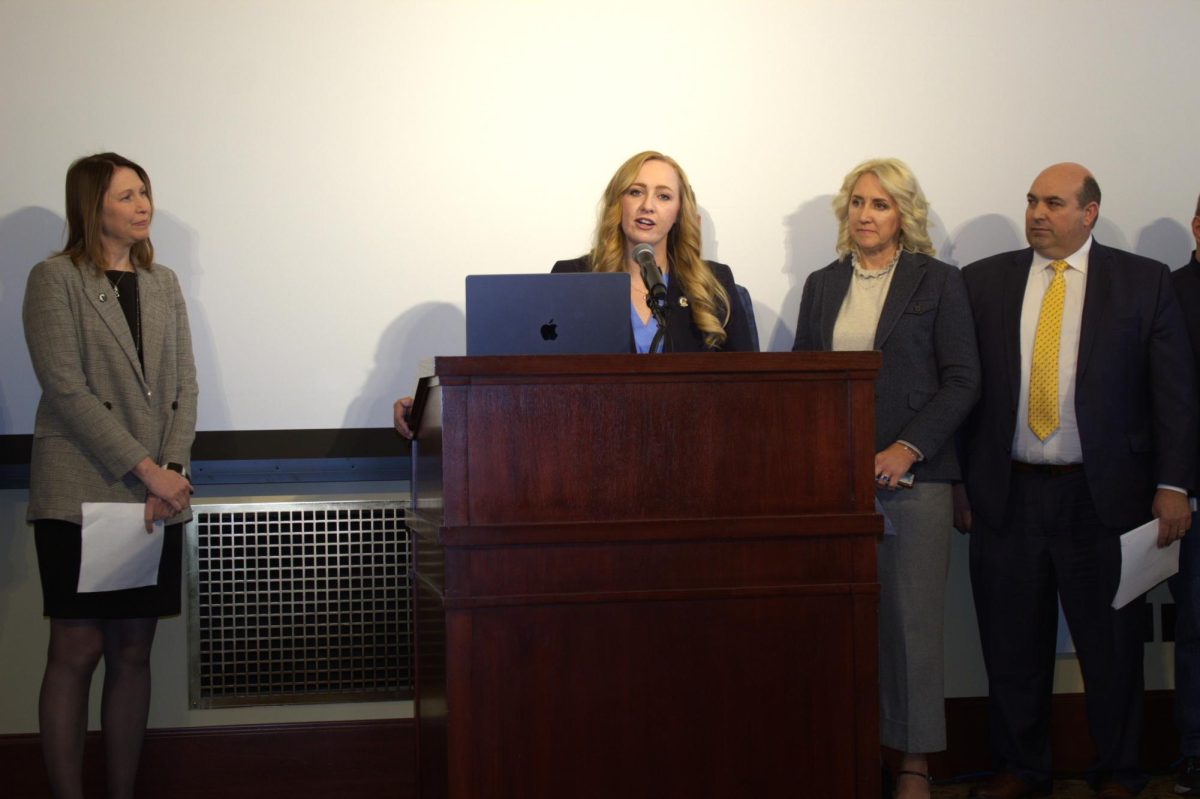The Utah House Majority Caucus hosted a press conference on Monday to discuss policy priorities for the upcoming 2025 legislative session. These priorities include education, the cost of living, infrastructure and crime.

Education
Legislators signaled cuts to state-funded higher education. Schools affected include the University of Utah, Utah State University and Salt Lake Community College. House Republicans confirmed these cuts will be targeted at degree programs without high wage earning potential.
“We need higher education institutions to get back to the basics … programs aligned with real opportunities,” Speaker of the House Mike Schultz said.
Rep. Candice Pierucci also spoke on education legislative priorities, stating that education is “crucial for improving lives,” but there is a need for affordable education programs with high-earning job opportunities in technical and trade fields.
Schultz said in October that budget cuts for higher education could be as high as 10%. When asked about that percentage at the press conference, he said the number “seems to have a lot of traction.” He declined to confirm if these cuts would specifically target humanities programs such as gender studies, Pacific Islander studies or Indigenous history.
State and local government funding for all higher education totaled $1.5 billion in the 2023 fiscal year. At least $250 million was appropriated to the U in 2023 to construct new campus housing and other buildings.
State funding is not the only source of funding for the U. The state government makes up only 4.7% of funding for the U’s research; the vast majority comes from federal grants.

Affordability
Legislators signaled several efforts to lower tax burdens on Utahns and new programs to support first-time home buyers. Rep. Karen Peterson said the cost of living is “too damn expensive” and seeks to lower taxes in the upcoming session.
Water Infrastructure
The environment remains a key concern for Utah — specifically, efforts to save the Great Salt Lake.
The Great Salt Lake Strike team determined that major environmental policy changes will be required to restore the lake to a healthy level following decades of mismanagement, including mineral extraction and human water use. Failure to preserve the Great Salt Lake could release arsenic into the air that sweeps into the valley through dust storms.
Policy priorities include building water infrastructure and establishing a plan for meeting projected water needs.
Crime
Utah legislators announced a number of policies targeting drug trafficking and illegal immigration, as stated during a separate press conference last Monday. Rep. Karianne Lisonbee said these bills generally increase criminal penalties for trafficking fentanyl into Utah while simultaneously encouraging deportation for undocumented immigrants convicted of Class A misdemeanors.
Government Accountability
In conjunction with Utah’s executive branch, the House signaled a continued push to appropriate federal land. On Jan. 13, the U.S. Supreme Court declined to hear Utah’s case against the federal government to gain control of this federal land.
Schultz said the Supreme Court case was “a little bit of a long shot” but still planned to push forward through other federal court processes. Rep. Casey Snider seconded these sentiments, citing poor forest management in Utah as a risk factor for fires such as those currently devastating Los Angeles.
Next Steps
Utah’s 2025 legislative session will begin on Tuesday, Jan. 21, and conclude on March 7.
Utah features the shortest legislative session in America, encouraging lawmakers to quickly introduce, debate and vote on bills. At the moment, over 200 House bills and over 100 Senate bills have been announced. Bills may be introduced any time between January and early March depending on the bill’s contents.
The House Majority Caucus is made up of 61 of Utah’s 75 state representatives, a supermajority. Ongoing developments on bills can be found on the Utah House of Representatives website.



